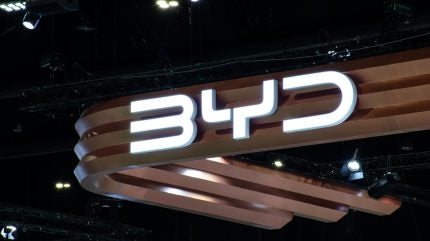
Chinese EV maker BYD has opposed the European Union’s proposed tariffs on Chinese-made EVs, while also pledging to produce nearly all the BEV cars it sells in Europe locally, reported Reuters.
In an interview with the news agency, BYD executive vice president Stella Li said the carmaker is planning to produce components locally and assemble battery packs in its Hungary and Turkey plants, with only the battery cell being imported from China.
This move comes as BYD aims to sell almost all the BEV cars it offers in Europe with local production.
Li expressed the company’s disagreement with the EU’s tariff calculations at the Paris car show.
“We disagree a lot on the calculations… it is not a fair judgement,” she stated.
Li highlighted the potential negative impact of tariffs on auto manufacturing costs and the industry’s complexity, urging politicians to refrain from such measures.
BYD is still weighing whether to pass the cost of tariffs—17% on the company in addition to the existing 10%—onto consumers or absorb the impact.
Li indicated that selling cars in Europe for under €30,000 might not be feasible for BYD under these conditions.
In the same vein, Leapmotor International JV CEO Tianshu Xin, whose company is controlled by Stellantis, shared concerns about the EU tariffs potentially influencing which models are produced in Europe.
Although decisions on passing tariff costs to consumers are not finalised, Xin noted that Leapmotor’s in-house vehicle development could allow for some cost absorption.
Meanwhile, Li further detailed BYD’s strategy to integrate into the European market by sourcing extensively from local vendors and Chinese suppliers establishing operations in Europe.
The company’s global expansion includes constructing assembly lines in various countries, with exports being a significant part of its growth strategy.
In contrast to the EU’s stance, British trade minister Jonathan Reynolds stated that Britain does not intend to impose similar tariffs on Chinese EV imports.
The EU member states recently supported import duties of up to 45% on Chinese-made EVs, a measure the European Commission argues is necessary to counteract alleged unfair subsidies from Beijing to Chinese manufacturers, a claim Beijing denies. It led to retaliatory measures on the EU’s cognac exports, which hit France the hardest as they import substantially into the Chinese market.



